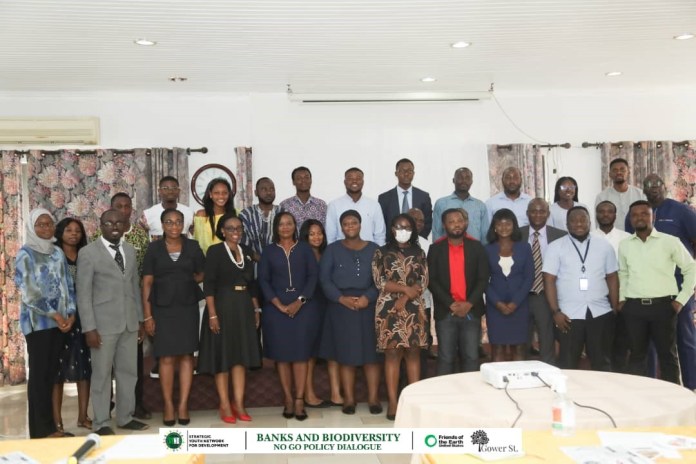The Strategic Youth Network for Development (SYND) has urged banks to adopt robust policies to guide their financing mechanisms for projects to ensure a safe ecosystem.
The non-governmental organisation (NGO), which seeks to achieve environmental sustainability through active youth inclusion in the governance of climate-related thematic areas, believes that as banks finance projects in the form of loans, grants or investments, they have to adopt pragmatic measures to attain sustainable development.
It is from this background that they are urging banks to adopt and implement principles of the ‘Banks and Biodiversity No Go Policy’, which demands that they stop financing projects related to biodiversity loss and social damage.
According to the group, the call is based on the recognition that banks’ financing policies for projects or programmes may have dire consequences on sustainability of the ecosystem.
Some of these impacts, they say, are already being felt because of ill-conceived infrastructure development, fossil fuel energy development and utilisation, extractive industries’ activities and improper land use.
“In spite of the significant role banks play in financing these sectors and activities, many financial institutions are however yet to develop robust policies or practices to address the biodiversity impacts of their lending,” Executive Coordinator-SYND, Chibeze Ezekiel, has noted.
He said this at a dialogue session in Accra organised by SYND in partnership with Friends of the Earth-USA (FoE-US) to sensitise banks in the country on the ‘Banks and Biodiversity No Go Policy’, as well as gather their views and recommendations toward successful implementation of the policy.
“We think that banks must also put in extra efforts; we are aware they have their internal mechanisms, risk assessment, but there must again be a conscious effort, if possible, to create a unit to that effect. And if a project is going to have any adverse impact on the environment, banks must not fund that project,” Mr. Chibeze added.
The call is also in line with the Bank of Ghana’s (BoG) Sustainable Banking Principles (SBPs), which seek to provide guiding principles to underpin an effective Environmental and Social Risk Management (ESRM) policy frameworks for banks.
The dialogue session saw the Ministry of Environment, Science, Technology and Innovation (MESTI), Cal Bank Plc, Fidelity Bank, ABSA Bank, GCB Bank Plc and other banks supporting the campaign and assuring their respective efforts to ensure sustainability, reduce environmental risk and champion the financing of green projects.










